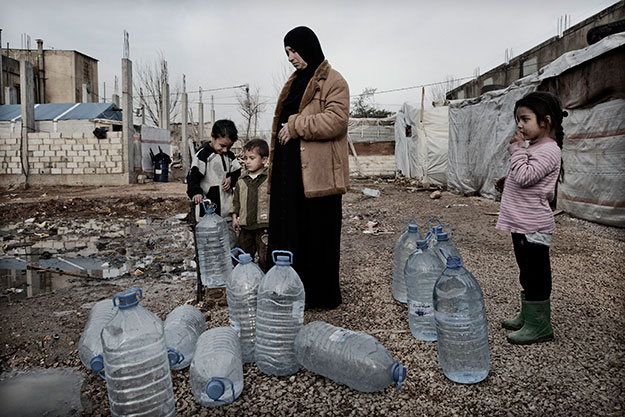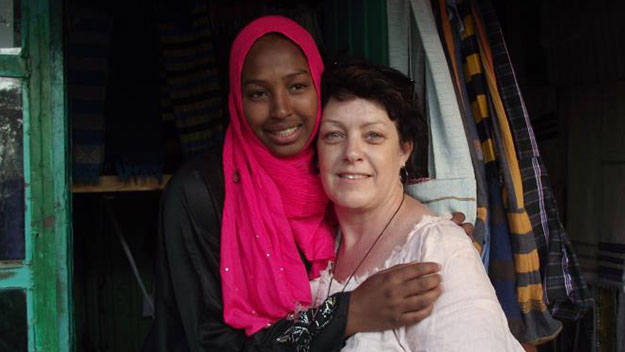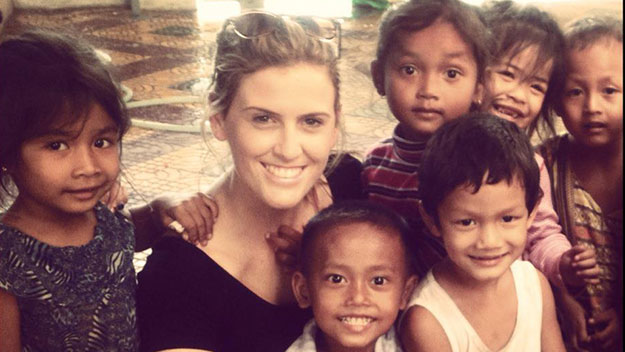I recently met Reema*, a 19-year-old Syrian girl, in a refugee camp in Lebanon. Back in Syria, Reema had her whole life before her. She’d just finished high school, and was about to go to university to study. She was eager to work and set up her future.
Then, her family home was bombed and she, her parents and sisters had to flee. Now she sits in a camp with no chance of further education, no prospect of independence, and — in her eyes — no real hope of a better future.
Sadly, Reema’s story is just one of many among the people of Syria.
Over the past four months, I have met many women refugees in Lebanon and Jordan. I feel honoured to hear their stories. In a crisis such as this, the views and concerns of ordinary people are often hard to find. The voices of women are especially rare.
Many Syrian women are struggling to deal with the reality they face. Like you and me, they used to have homes, jobs, water, electricity, education and healthcare. Some are university professors, architects, and their husbands are landscape gardeners, stone masons and businessmen. Then, one day, it was all gone.
For many mothers I have met — it is their children they are most worried about. Many fled Syria because they feared for the lives of their sons and daughters.
They worry that their children are no longer getting an education, that the water they are drinking is making them sick, and that they won’t be able to provide them with enough food.

Women and children collecting water in a Lebanese refugee camp.
Pregnant women are worried about giving birth and raising children in a camp that is dusty and dirty, where only basic medical care is available.
Listening to these stories, I am struck by how lucky I am to have grown up in a country that is stable and prosperous like Australia.
When I am sick, I go to see my local doctor. When I turn on a tap, I have drinkable water. How would I cope if tomorrow I became a refugee? I honestly don’t know.
It’s not something I’m likely to face. But then, that’s what the women I have met thought too.
One of the most common phrases I have heard refugees from Syria say is: “I never thought this would happen to us.”
Since the conflict started three years ago, 1.6 million people have had to leave Syria to find safety and security in neighbouring countries, sometimes with nothing more than the clothes on their backs.
Another 4.25 million people are still inside Syria, but have had to flee their homes to try to find a safe place to live.
Oxfam, and many others, is able to help with the immediate problems facing refugees.
For example, we are working with local organisations to provide cash and vouchers so families can buy food and pay for a roof over their heads — whether that roof is a basement, part of an abandoned building, or plastic sheeting to make a tent.
The aid that governments like Australia and individual people give is truly making a difference — it is saving lives.
The UN has just asked for US$5 billion to provide people affected by the Syrian crisis with life-saving humanitarian assistance during 2013.
It’s a huge amount of money, but to provide essential aid such as food, water, shelter and medical care to the millions of people affected, it is the amount we need.
What aid agencies like Oxfam can’t do is make Syria safe enough for people to go home. Governments and the opposition groups inside Syria need to do that — and we strongly urge them to find a peaceful solution to the crisis as soon as possible.
The women I have spoken to desperately want to go home. They love Syria. But until it is safe to do so, they sit in limbo in countries like Lebanon and Jordan — not knowing their fate.
**Reema is not her real name.*
To help women like Reema get back on their feet, donate to Oxfam’s Syria crisis appeal.
Claire Seaward is a campaign manager for Oxfam. Having grown up in Harvey, South West Australia, Claire went to the University of Western Australia in Perth where she completed a degree in commerce. After moving to the UK, Claire began working with Oxfam as a campaigner. Over the past eight years with Oxfam, Claire has campaigned for better lives for the poorest people, through education and healthcare for all, more and better aid, debt relief, land rights for poor women farmers, global regulation of the sale of small arms and faster and better assistance during humanitarian crises. She has spent time in Pakistan, west and southern Africa, and Nepal, and has worked with colleagues across the world. Claire has been leading Oxfam’s campaigning on the Syria response since late February 2013. Based in Jordan and Lebanon, she has been campaigning for a faster and better humanitarian response for refugees and people inside Syria. She normally lives in Sierra Leone.


